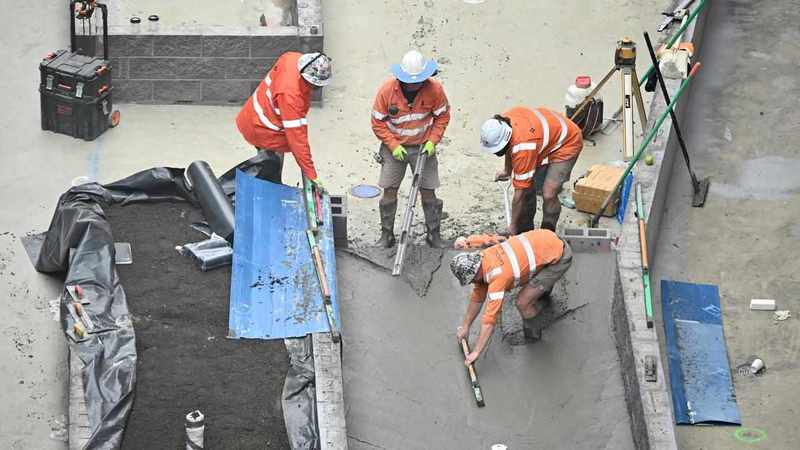Deadly silica dust should remain a national health priority after a nationwide engineered stone ban was passed.
A Monash University professor says the “landmark” ban is a step in the right direction, but more will need to be done to limit the lives lost to silicosis.
Dubbed the modern-day asbestos, engineered stone is commonly used in kitchen benchtops, with workers using the product often developing the incurable and deadly lung disease silicosis.
The ban will take effect from July 1 after federal, state and territory workplace ministers reached an agreement on Wednesday.
But while the ban helped the nation’s 4000 stonemasons, it did little for the 600,000 workers across other industries who will still be exposed to silica dust.
And Monash University’s head respiratory pharmacology laboratory professor Jane Bourke said adverse health effects of the dust might not be apparent for years or decades after the ban.
“While this is a landmark decision for silicosis prevention in the engineered stone industry, the monitoring and protection of workers in all industries, including mining and tunnelling, exposed to silica dust has to remain a high national health priority,” she told AAP.
“Finding new non-invasive ways to detect silicosis will be critical to allow health monitoring not only of current workers but also those who leave these industries.”
The Royal Australasian College of Physicians agreed the ban shouldn’t be seen as “fixing the problem”.
“It is also important to remember that there are many other sources of silica dust in workplaces across Australia which need to be eliminated or safely controlled,” they said in a statement.
“We must ensure that we’re doing everything possible to support those who have already been exposed to harmful silica dust.”
Australian Workers’ Union national secretary Paul Farrow said the 600,000 workers from other industries - such as construction, tunnelling, quarrying, mining, road work - couldn’t be protected from silica dust as the products they work with cannot be banned.
“Reform is more complex, but no less important. Primarily we need to strengthen the Work Health and Safety Act to provide a clear definition for high-risk silica work and introduce strong provisions for working around the hazard,” he said in a statement.
Law firm Slater and Gordon welcomed the ban and labelled it a “monumental decision”, while raising the alarm for those who have been exposed to silica over time.
“We are also worried about the rate of undiagnosed silica-related injuries in workers and retired workers in industries where monitoring has not historically been imposed,” the law firm's Joanne Wade said in a statement.
The national ban on engineered stone was endorsed following a Safe Work Australia report commissioned by workplace ministers.
A ban on importing the stone will also be introduced.









